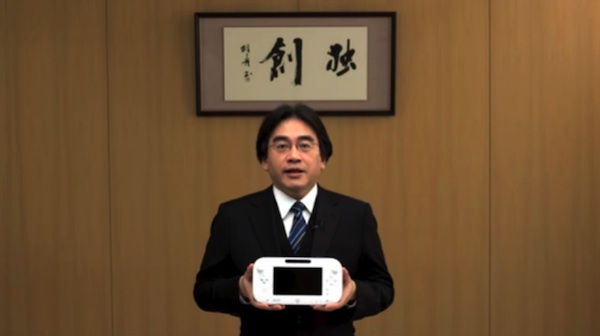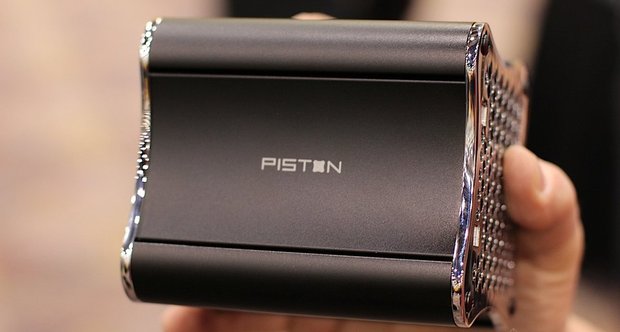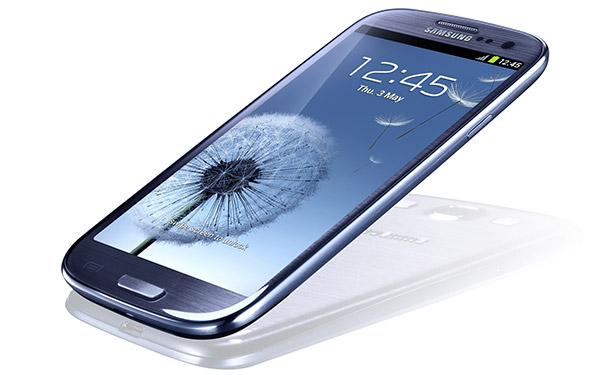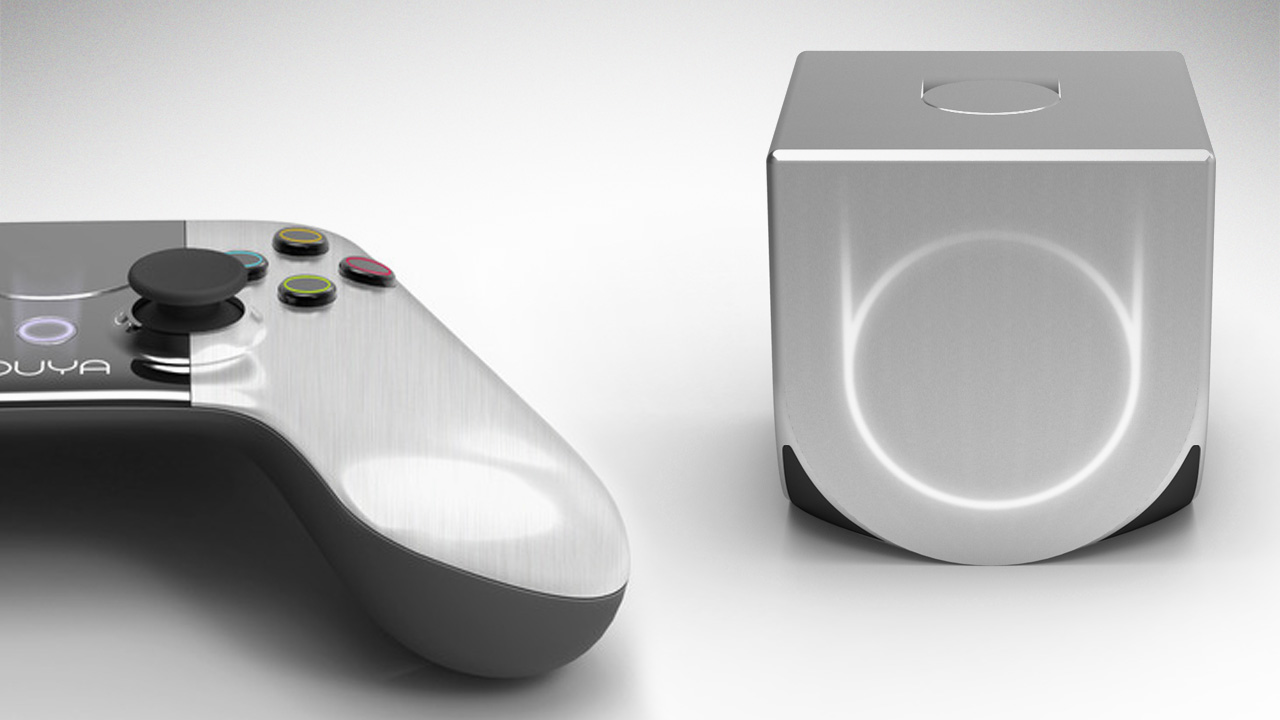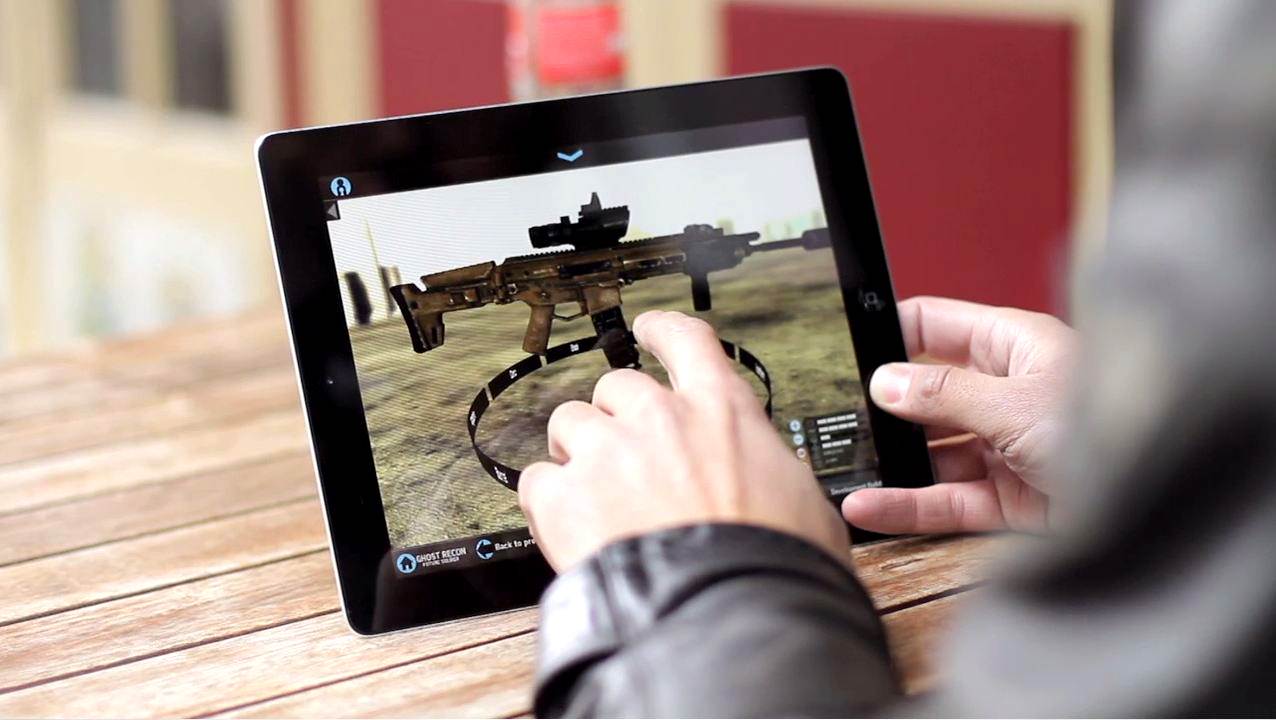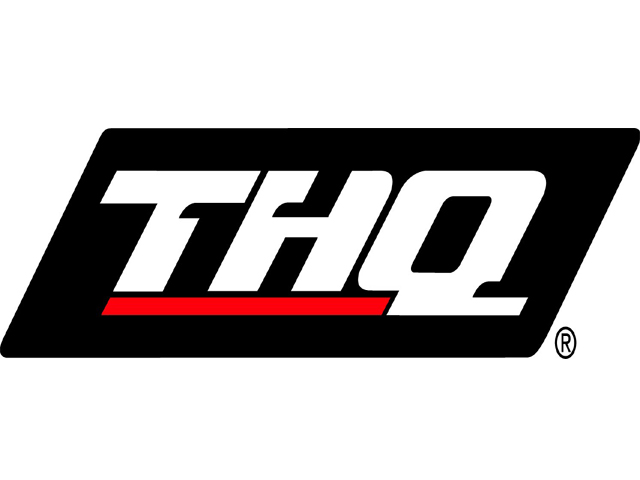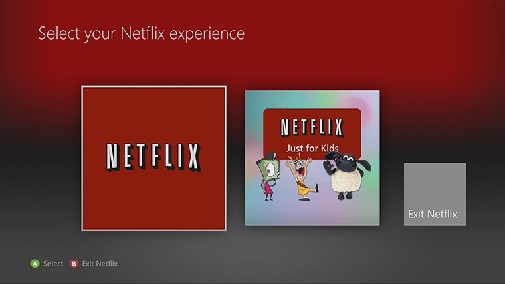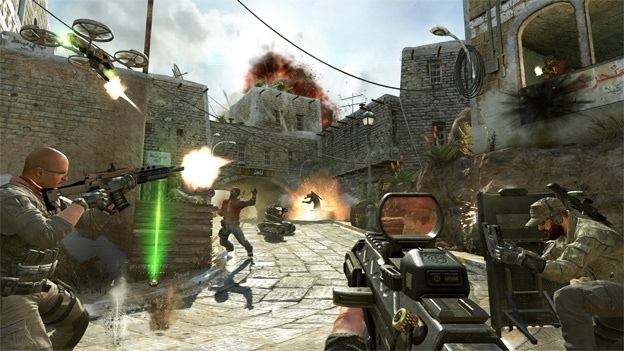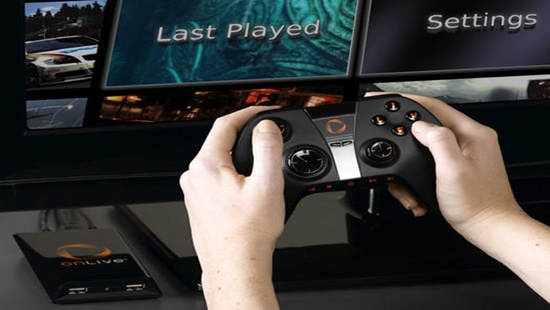These DIY iPhone Speakers are Genius
#1 The Horn
Not an easy one to construct, but this horn based speaker system is classic, stylish, and effective. So grab the french horn from 5th grade band class that's sitting in your basement, cut a hole in the top, and run a tube from the mouthpiece to your makeshift dock.
Labels:
iPhone
VIDEO: Amazon Testing 'Octocoper' Drone Deliveries
The future is bright, the future is a drone delivering Amazon packages to your door.
TAGGED:

Amazon is trying out delivering packages using unmanned drones called Octocopters (no relation to Octomom), founder Jeff Bezos said on CBS program ‘60 Minutes’ on Sunday.
The craft, which looks like a barbecue with propellers, could deliver packages weighing up to five pounds (2.3kg), which make up 86% of Amazon orders, Bezos said. The ‘Prime Air’ service is being designed to deliver items within a 10-mile radius of distribution centers in half an hour or less.
‘I know this looks like science fiction, but it's not,’ Bezos said. We might get to pretend to be Katniss Everdeen in the Hunger Games getting a gift floated into the arena, but the Bezos’ announcement also looks suspiciously timed to coincide with online shopping blowout Cyber Monday. Bezos is going to have a really sad Christmas if Amazon doesn’t beat the 41 sales per second it made in the UK last year...
Civilian airspace is yet to be opened up , unmanned drones, but could be populated with Amazon’s flying spiders by 2015 in the US and 2016 in Europe.
Dr Darren Ansell, an expert on unmanned aerial vehicles (UAVs) at the University of Central Lancashire, pointed out some pretty obvious potential flaws in Amazon’s plan to the BBC: ‘With no one to guard them the aircraft and package could be captured and stolen,’ Ansell said.
‘The UAVs do not currently have the awareness of their environment to be able to avoid flying into people,’ Ansell added. And birds. Won’t somebody please think of the birds?
The craft, which looks like a barbecue with propellers, could deliver packages weighing up to five pounds (2.3kg), which make up 86% of Amazon orders, Bezos said. The ‘Prime Air’ service is being designed to deliver items within a 10-mile radius of distribution centers in half an hour or less.
‘I know this looks like science fiction, but it's not,’ Bezos said. We might get to pretend to be Katniss Everdeen in the Hunger Games getting a gift floated into the arena, but the Bezos’ announcement also looks suspiciously timed to coincide with online shopping blowout Cyber Monday. Bezos is going to have a really sad Christmas if Amazon doesn’t beat the 41 sales per second it made in the UK last year...
Civilian airspace is yet to be opened up , unmanned drones, but could be populated with Amazon’s flying spiders by 2015 in the US and 2016 in Europe.
Dr Darren Ansell, an expert on unmanned aerial vehicles (UAVs) at the University of Central Lancashire, pointed out some pretty obvious potential flaws in Amazon’s plan to the BBC: ‘With no one to guard them the aircraft and package could be captured and stolen,’ Ansell said.
‘The UAVs do not currently have the awareness of their environment to be able to avoid flying into people,’ Ansell added. And birds. Won’t somebody please think of the birds?
Labels:
Amazing Gadgets,
News
10 Reasons Why The Next Generation May Be The Last Console Cycle

For decades now home consoles have been easily defined and categorized into several generations. There are a few notable exceptions of course, most notably the Sega’s release of the Dreamcast between generations five and six, a release that saw their dominant run in the game’s console business come to a swift end. This pattern of console generations has been the death of those that dare to stray outside of it, but these generations divide may cease to exist once the Xbox One and PS4 have run their course. Here’s ten important reasons why this may be the case in the future.
Nintendo Aren’t Competing
Though a third major competitor in the console wars only came about when Sony launched their PlayStation back in 1994, console generations have since been defined in sets of three. With Nintendo is releasing their Wii U in between the seventh and eighth generation though, they seem to be removing them from generational classification, a refusal to compete with Sony and Microsoft exacerbated by their decision to not hold a conventional conference at this year’s E3. Even if consoles continue as we know them, will we take the time to define complete generations for only one or two systems?
The Steam Box
Generation classifications only really hold up when the focus of gaming is on set games console. New competitors will throw traditional generation divides out of sync, and Valve’s Steam Box may do just that if it lives up to the usual quality of the Half-Life developer. Granted, it’s more a PC than a separate game console, but it may be enough for PC gaming to eclipse and replace the console market altogether.
Smart Phone Markets
With casual gaming on the rise, most of the population is happier paying out a few pounds for a good phone game over a £40 AAA shooter. In terms of sheer money, you can’t argue with that, and the phone is a device that is almost always to hand and is upgraded very regularly. Raw graphical power and control issues with touch screen devices are just about the only thing keeping core gamers at home on consoles, so you can only imagine what would happen to the console market if phones managed to overcome the issue of touch screen controls.
The Rise of the Micro Console
The Rise of the Micro Console
With Ouya and the GameStick taking Kickstarter by storm, smaller consoles released in shorter intervals may become the standard over lengthy 5+ year hardware cycles. These micro consoles are undoubtedly influenced by the popularity and immediacy of smart phone gaming and, if they can combine the accessibility of mobile gaming with better controls and hardware, they may dethrone console gaming as we know it.
Indie Popularity
Courting independent developers seem to be on the mind of all three major platform holders at the moment, a vital ingredient for modern console success. With indie games offering some of the most original and creative experiences at the moment, future consoles may live and die based on their support from indies. Of course, the thing to remember is that the more open nature of the PC means that it will always be supported by the independent community, meaning the PC is in a better situation than consoles.
Tablet Gaming
Here’s where things get really tricky. PC systems offer a core and indie game experience, whilst mobile platforms have an accessibility lacking in other hardware sectors. The rise in tablet gaming shows how larger touch screen devices merge the two together. Bigger screens and bluetooth controllers remove the usual control issue levelled at smart phones, and this attracts awesome core game and ports such as the GTA series and the recent Star Wars: Knights of the Old Republic release for Ipad. That and they can also be used for work, rather unlike your Xbox 360 or PS3.
The Console Market is Losing Money
There was a point at the height of the economic recession when commentators boldly claimed that the games industry was recession proof. They were wrong. Very wrong. Some areas of the industry have proven resilient to economic decline, but the reported losses of companies like Square Enix and the total bankruptcy of giants like THQ shows the perils involved in developing console titles. Sure, the rewards are high, but the risk is even higher when you develop games for the populist market. With the economy still in a questionable state, low risk platforms will prove more attractive to developers and publishers than conventional consoles.
Multimedia Solutions
It was only ten years ago that a game console did exactly what it said on the tin. Your N64 played N64 cartridges and little else, lacking even a home menu. Now a console is required to be an all purpose entertainment center to stay competitive and, whilst this leads to versatile hardware, it results in a diminished focus on standard gaming. This isn’t necessarily a bad thing but, if I’m primarily using my 360 to stream movies on Netflix and Lovefilm, why would I need to upgrade my hardware?
Console Conservatism
As money becomes tighter amongst all industries, what few console games still sell well now resort to outrageous conservatism for fear of losing out. I suppose there’s the old “if it ain’t broke, don’t fix it” argument, but you can’t deny that some series are really getting old. Call of Duty is but one example of a series that has barely changed since 2006 and, even when other AAA developers claim their next game is a great breakthrough, this is almost always an overstatement. Consumers are bound to get tired of these rehashed ideas at some point and look for more exciting gaming experiences elsewhere.
The Cloud
Belying my usual cynical demeanor is my unwavering respect for cloud gaming services like OnLive. Of course OnLive hit financial trouble in 2012 and was only brought out for a meager sum, but this kind of cloud powered service makes more sense as the future of gaming than dedicated console hardware. Once internet becomes reliable enough worldwide to handle it, cloud gaming could become the new standard. Hell, even Sony and Microsoft are relying on cloud solutions to provide extra processing power and gaming services to their systems, so it’s only a matter of time before the full game streaming services becomes the norm. With their servers handling the load, users won’t be required to upgrade their hardware ever.
Tagged with: console generation, ps4, wii u, Xbox One
Labels:
Gaming
MICROSOFT CONFIRMS PS4 CAN BE CONNECTED TO XBOX ONE
Microsoft: Xbox One can connect to PS4; you can play "Ryse and Killzone at the same time"

Microsoft says you could see this happen on one TV screen when the Xbox One and PS4 are connected.
Many consumers would love to buy both the Xbox One and PlayStation 4 consoles when they arrive this November. Now it turns out that hardware developments from Microsoft and Sony will allow people to play a game from each console on one TV at the same time.
Earlier this week, Sony announced as part of its Tokyo Game Show presentation that the company would allow for capturing of game video with its HDMI port. This is an interesting move by Sony since it established HDCP copy protection over an HDMI connection in its current PS3 console.
Microsoft has put an HDMI pass-through port in the Xbox One, which allows it to output video from another hardware device. The port was put in primarily to allow Xbox One owners to connect it to a cable TV set top box so they could watch a TV show in snapped mode while also playing a game. Microsoft has also confirmed that the Xbox One will work with external video capture devices.
Now that Sony has said there will be no video capture copy protection for games with the PS4's HDMI port, Microsoft has revealed that has opened the door to a crossover between the two rival consoles. In a GameSpot interview, Microsoft exec Albert Penello (spelled incorrectly in the article as "Albert Panello") talked about the snap feature in the Xbox One's user interface. He said, "... any application can be snapped to a game…this could be the live TV feed, so if you wanted to be playing Ryse and Killzone at the same time, you could snap that."
This opens the door to some interesting possibilities as game reviewers will be able to really compare the looks of both the Xbox One and PS4 versions of one game at the same time. It also would seem like the Xbox One's HDMI in port could also connect to the Xbox 360 or the Wii U.
Source: GameSpot | Images via Microsoft and Sony
Labels:
Gaming
PlayStation’s DualShock 4 May Change Other Gaming Systems
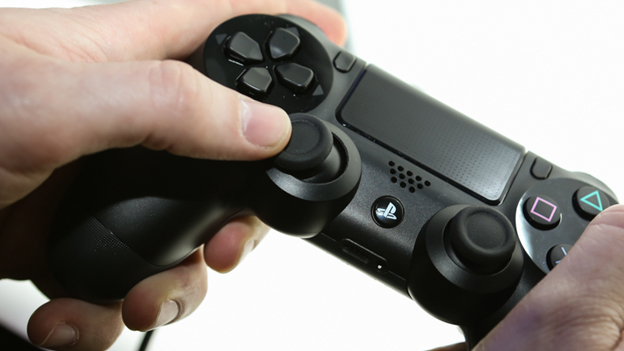
Can’t we all just share our toys?
Over the years, it’s been interesting to see how technology has allowed us to branch out from the traditional way of gaming. Everyone knows that when it comes to consoles, each system has its own unique propriety trademarks. The PlayStation controller, for example, is often considered one of the best gaming controllers ever. Ergonomically speaking, the shape and contour of the plastic fit perfect in just about anyone’s hands comfort. Also, the layout of the buttons no doubt influenced Microsoft, who would later become its competitor when it designed its Xbox controller (we’ll overlook the monstrosity the original Xbox shipped with). The point is, these days, developers have things locked down pretty tight. You’re not going to see things like an Xbox 360 controller running a PS3 console (without a mod or foreign adapter). It’s even become more difficult for third-party developers like MadCatz and Pelican to get in on the fun, as they’ve always been known for making great accessories, often times cutting into the original manufacturer’s profits due to offering the product at a discounted rate.
Recently, Sony announced that the new DualShock 4 controller (set to be released with its PlayStation 4 console this November) will be compatible with Windows-based desktops. This is good news for gamers who are a fan of the PlayStation, as the PS3 controller has always been considered a real nightmare to get working on a computer (in a setup that was considered non-user friendly at best). Microsoft’s Xbox 360 controller has always provided a very simple plug-and-play setup. Most Windows-based systems already have the drivers, so getting your controller to work on your PC was no more complicated than connecting a USB drive. So, with the introduction of the DualShock 4 to PC, it’s interesting to see just how far Sony is willing to blur the lines when it comes to the traditional conventions of gaming technology. After all, with the upcoming Xbox One vs. PS4 war set to begin (and Microsoft manufactures both Xbox and Windows), it’s almost like Sony is attempting to plant a flag in its competitor’s front yard. Many PC-based games run on Microsoft’s “Games for Windows” platform and will now be played via a Sony product. That… is kind of a mind job.
Of course, this isn’t exactly new ground Sony is breaking. Throughout the ages, there have been other companies who have blurred this line between themselves and their competitors. Breaking down the technological walls, for many companies, is a way to dip into their opponent’s market share. If you take away the concept of exclusivity, it becomes harder for your competitor to sell its product as a better option to yours. Two of the biggest entries into the earliest days of the console wars were the Atari and the Intellivision. Even before the days of the 8- and 16-bit wars began, these two were the granddaddies of feuding consoles. Intellivision, in an attempt to overtake the powerhouse Atari, boldly released an add-on for its Intellivision 2 that actually played Atari 2600 games. OK, so let’s think about that for a second. To put that into perspective, imagine if at launch, the Xbox One said it was backwards compatible with PS3 games.
BOOM… mind blow!
It makes you wonder just how far a concept like this will go in the future. Many gamers are aware of the old trick of plugging a Sega Genesis controller into an Atari 2600 to play the games. The DualShock 4 crossovers remind me of this in a lot of ways. The technology of those days was in such an infantile stage, you naturally had overlapping hardware that was universal (subsequently allowing for that kind of thing). Thus, that’s how we got the Genesis/Atari melding. As consoles became more advanced, they started moving away from standard tech and developing proprietary technology that began once again putting up walls between them and their counterparts.

Now, with many of today‘s hardware being based around things like drivers, it’s much easier for these walls to begin to come down once again. As I mentioned earlier, many third-party companies overseas already provide things like adapters or hardware mods that will let you connect controllers to other systems they were never intended for. Is this a trend that the major console developers will one day pick up on? If so, the DualShock compatibility with a PC could be seen as Sony dipping its toe into that pool. Hopefully, we will see more of this kind of crossover technology in the future from the “big two” and not just third parties, who is forced to do backdoor deals with distributors so they avoid legal repercussions.
So thanks Sony, this concept is now wetting my appetite. The thought of stringing together all our gaming devices in some weird “console Frankenstein” is too sweet to pass up.
Under Creative Commons License: Attribution Non-Commercial No Derivatives
Labels:
Gaming
Microsoft and Sony Make the Console War Personal
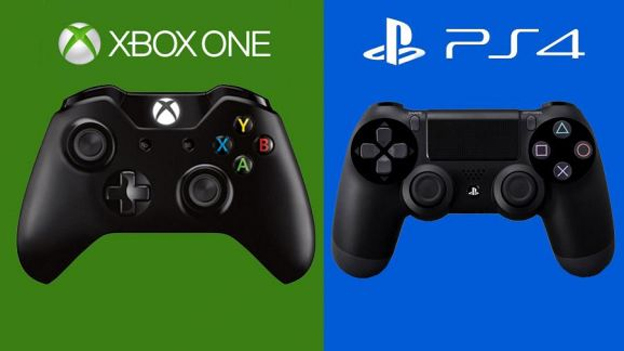
If the console war took place in a prison yard… I’m pretty sure one of the companies would get shanked.
It sounds weird, but that seems to be just how personal the console war has become--not just for gamers, but also for the companies releasing the systems as well. Over the years, I’ve seen the birth of many new generations. Actually, I’ve seen just about all of them. I was there when Nintendo resurrected the gaming industry with its 8-bit innovation, and I’ve been gaming ever since. While I don’t own every console, I’ve seen successes and failures come and go. Now we’re left with what I call the “big two”: Sony and Microsoft.
It used to be that the trend for defending your home team (and cutting down your competitor in the process) was something you’d only hear from the most hardened of fanboys. All sides have them, whether it is the PS3 fanboy who’s convinced that Sony is the sexier console because of its exclusives, or the Microsoft fanboy who believes that the online model of Xbox Live is what makes it superior. I won’t get into what PC fanboys believe, because some of them are so passionate they may burn my house down ( not that I haven’t touched on it before). Now, however, it seems that the stiffest jabs are coming right out of the developers’ camps. A trend has developed in the world of console development where executives of game companies regularly engage in a war of words directed at their opponents.
At this year’s E3, Microsoft made announcements that were, needless to say, controversial. So much so, that Sony spent the good portion of its time picking each item apart one by one. Microsoft, in many ways, helped write a Sony’s keynote speech and gave it the rope to hang them with. In the meantime, Microsoft has since reversed course on many of the plans it had for its console, hoping to course-correct before the Xbox One hits the market. This, of course, seems reactionary and makes it look like Sony had it right, and Microsoft was totally missing the mark. So, is Microsoft out of touch for getting it SO wrong at the jump, or is the company savvy by knowing what to tweak and making the necessary changes rather than just staying the course?
Sony Worldwide Studios president Shuhei Yoshida thinks the latter. In an interview the GamesIndustry International, he says “We know they're very smart people. It's great that they were able to quickly realize that some of the things they were doing were not popular, and were able to make really quick decisions to change some of those things - even things that their engineering group must have spent a lot of time preparing before the launch. It must have been a very tough time for them. That shows how smart they are, and it shows their dedication to making Xbox One successful.”
Somewhat of a backhanded compliment, but a compliment nonetheless.
Of course, Microsoft is no stranger to sharp-tongued comments directed at its counterpart--lest we forget the yearlong victory lap it took when the Xbox 360 released over 12 months before the PlayStation 3. More recently, the Microsoft team touts how completely unfazed they are by the fact that the PlayStation 4 will launch with a price tag of $100 less than the Xbox One. They’ve regularly stated that Microsoft has a better product, and the Xbox One is just worth more than its competitor’s offering.
It all comes down to one thing: perception. As they say, perception is reality…so let’s look at the public’s real viewpoint.
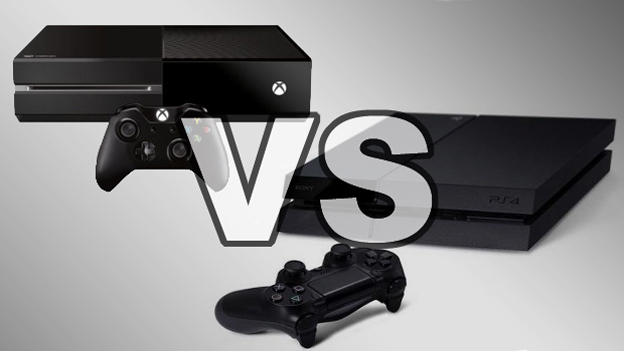
The fact of the matter is, no matter what Sony and Microsoft say to try and convince consumers they should buy one system over the other, in the end we make our own decisions. Sure, some of us are swayed, but most know how to see through the fog of BS and make a decision that’s best for us as gamers. The truth is, as of this writing, estimates have Sony outselling the Xbox One this holiday season, and one of the biggest factors is price. Most gamers will buy the system that’s the most near and dear to their heart, but the price tag is something that obviously will appeal to the general public. It comes down to perceived value, and even if the Xbox One does turn out to be a better overall console( which is far from a sure thing), it will have an uphill battle to prove that when the PlayStation 4 will gain the lion's share of sales and attention at the launch, largely due to its price markdown.
Not to toot my own horn, but recently I speculated that even with the gaming community typically not being swayed by marketing ploys (such as a price cut for example), you can’t deny the impact of just how much a $100 difference can mean to the general public, especially during a busy holiday season.
It seems I may have been right. So… um… toot toot…
Under Creative Commons License: Attribution Non-Commercial No Derivatives
Labels:
Gaming
Subscribe to:
Posts (Atom)
Comments / Your Posts
Related Channels
Faith Networks
- Faith Networks Main Page
- The Discipleship Series
- FN-TV
- Christian Views
- Christian Faith Blog
- Faith Networks Missions
- BWP-MediaOne Productions
- Causes & Community
- Advocates For Abstinence
- Disaster Relief & World Missions
- Faith Based Ministries
- Historical & Theology
- Theories, Truths & Endtimes Study
- Healthy Living - Good Intentions
- Causes.com
- Public Info
- Blog
- Media
BWP ENT
- The Arts
- Fashion & Performing Arts
- Poetry & Quotes
- Music Weekly
- Project_7
- Healthy Living - Good Intentions
- Green News
- Causes & Community
- Disaster Relief & World Missions
- Military Digest
- Entertainment Weekly | Media Corner
- Travel & Adventure
- Tech Blog
- Amazing Transportation
- Biz Blogger
- BWP-MediaOne Productions
- Internet Source Media
- Network Promotions
- Timeline of Events | World History
Live Feed
Popular Posts
-
3D printing has seemingly jumped from science fiction into reality. With a little design knowledge or access to a CAD designer, anyone can n...
-
PC case mods come in all shapes and sizes, but they typically return to metal casings as their choice of material. However in this instan...
-
Having seen a number of case mod competitions over the years as well as all of the ones I have posted that I have just stumbled across, I a...
-
Some of the Custom Gaming PC and Case Mods created by Mnpctech "Shiny" Firefly Tribute PC for Corsair by Mnpctech &quo...
-
When you had bought your PC gaming first, you may have liked its looks. But after having seen it in the same design for more than a year i...
-
Here is the video link on YouTube as well.... YouTube - Acrylic casing UV mod... Last edited by s@meEr; 23-08-09 at 11:12 PM .
-
These guys are literally geniuses. I’ve seen so many case mods but these are the ones I find most creative. Case modding is an art and it...
-
Are you looking for my other, previous, insane multi-monitor home office setups? Version 6.0 , Version 5.0 , Before 5.0 , The FAQ , and ...
-
You have spent a lot of time on the popular video game Battlefield 3 ? Maybe you also like to take some time to create an awesome Battle...
-
It’s difficult to define what’s geeky when it comes to Steampunk and casemods , just everything seems so fit to fill the slot. Well, leavi...
Blog Archive
-
▼
2013
(75)
-
►
October
(16)
- Amazing Car Tech Advances About to Hit Showrooms
- Valve backs PC maker Xi3, announces Steam Box mini-PC
- 10 Reasons Why The Next Generation May Be The Last...
- MICROSOFT CONFIRMS PS4 CAN BE CONNECTED TO XBOX ONE
- PlayStation’s DualShock 4 May Change Other Gaming ...
- Microsoft and Sony Make the Console War Personal
-
►
October
(16)
